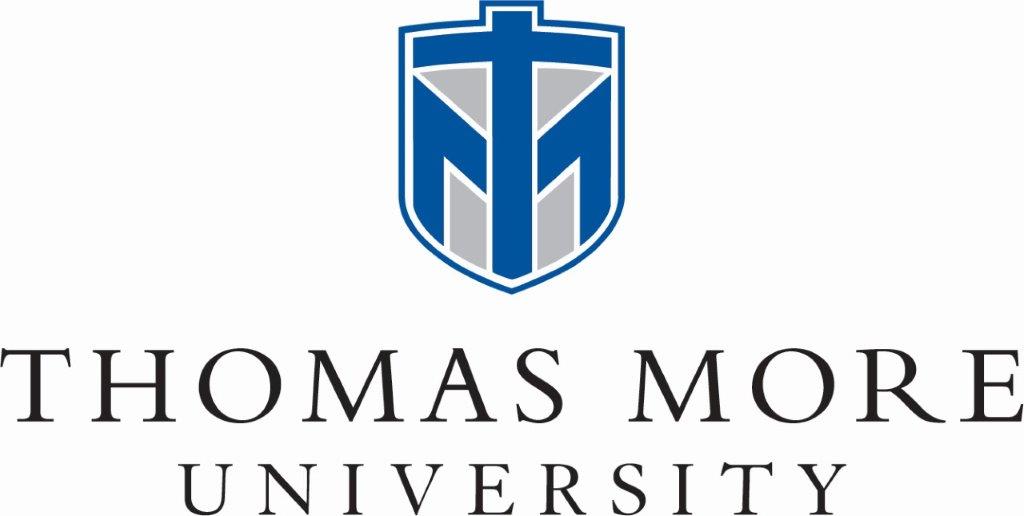
All University employees.
The purpose of this Policy is to support and promote Thomas More University’s commitment to justice and the dignity of each person by making employment decisions in a non-discriminatory manner throughout the University. The University applies this Policy to all personnel and employment practices, including, but not limited to, hiring, promotion, transfer, recruitment or recruiting advertising, layoff or termination, and compensation.
Disability—A physical or mental impairment that substantially limits one or more of the Major Life Activities of an individual.
Major Life Activities—include the following, but are not limited to: caring for oneself, performing manual tasks, seeing, hearing, eating, sleeping, walking, standing, lifting, bending, speaking, breathing, learning, reading, concentrating, thinking, communicating and working.
Reasonable Accommodation: modifications or adjustments to the work environment, or to the manner or circumstances under which the position held or desired is customarily performed, that enable a qualified individual with a Disability to perform the essential functions of that position. Also, modifications or adjustments that enable an individual with a disability to enjoy equal benefits and privileges of employment as enjoyed by similarly situated employees without disabilities. For applicants, modifications or adjustments to the interview process in order to enable the applicant to participate equally in the interview process.
Qualified Individual: is a person who meets legitimate skill, experience, education, or other requirements of an employment position that s/he holds or seeks, and who can perform the essential functions of the position with or without Reasonable Accommodation.
Undue Hardship: in general, with respect to provision of a Reasonable Accommodation, Undue Hardship means significant difficulty or expense. Some factors to be considered when determining whether an undue hardship exists are the nature and cost of the Reasonable Accommodation, overall financial resources of the employer, type of operations, and the impact of a Reasonable Accommodation upon the University’s operation and ability to conduct business.
Essential Functions of the Job: refer to those job activities that are determined by the employer to be essential or core to performing the job; these functions cannot be eliminated.
In keeping with Thomas More University’s mission and values, the University does not discriminate against Qualified Individuals with Disabilities and, in accordance with The Americans with Disabilities Act (“ADA”), the Americans with Disabilities Amendments Act (“ADAAA”), and any applicable state or local anti-discrimination laws, the University will engage in the interactive process with individuals to determine if a request for a Reasonable Accommodation can be made. It is the responsibility of the individual to request an accommodation. Furthermore, it is the University’s policy not to discriminate against Qualified Applicants and/or employees (hereinafter collectively referred to as “employee/applicant”) with Disabilities in regard to application procedures, hiring, advancement, discharge, compensation, training or other terms, conditions and privileges of employment.
Federal Law ADA Restoration Act
EEOC Law Americans with Disabilities Act (ADA)
EEOC Law Americans with Disabilities Act Amendments Act (ADAAA)
Equal Employment Opportunity Policy
Harassment in the Workplace Policy
Service Animal Policy
I. Notification of Need for Accommodation
The employee/applicant is responsible to notify Human Resources of the need for a Reasonable Accommodation. Once notified, Human Resources will facilitate the Reasonable Accommodation process.
II. Initiation of Interactive Process
Human Resources will facilitate an interactive process with the employee/applicant involving, as appropriate, the employee’s supervisor and/or the employee/applicant’s healthcare provider with authorization by the employee.
III. Determination of Disability
Human Resources has responsibility for requesting information to determine whether the employee/applicant is a Qualified Individual with a disability that is protected under applicable law and, if so, whether any of the functions that the employee/applicant is unable to perform are essential job functions. Human Resources will consult with the employee’s supervisor, as appropriate, to make these determinations.
IV. Determination of Reasonable Accommodation
V. Determination of Effectiveness of Accommodation
Changes should be considered if the accommodation is found not to be effective or if the accommodation becomes unreasonable for either the employee/applicant or the employer. It is expected that, over time, further modifications may be necessary, due either to changes in the organization’s operations or in the caregiver’s condition. The process for identifying replacement accommodations may follow the same steps used in determining the initial accommodation.\
VI. Confidentiality
Human Resources will maintain a separate confidential medical file for the caregiver.
Information regarding an employee/applicant’s request for Reasonable Accommodation under this Policy shall be kept confidential, except that:
VII. State or Local Law
To the extent that applicable state or local law provides additional rights for employees with disabilities than those rights provided under federal law and discussed in this Policy, the University will fully comply with such state or local laws.
VIII. ADA/Section 504 Complaint Procedures
The Compliance Group has been designated as the Section 504 Coordinator and coordinates compliance with the nondiscrimination requirements of Section 504 of the Rehabilitation Act, the Americans with Disabilities Act (ADA), and applicable federal and state regulations.
The University, via the Harassment in the Workplace Policy, has adopted internal complaint procedures providing for prompt, equitable, and impartial resolution of reports alleging any action prohibited by the ADA or Section 504. These procedures apply to complaints of discrimination or harassment on the basis of disability by staff, faculty, and applicants for University employment.
Reports of unlawful harassment or discrimination by an employee based on a disability may be reported the Section 504 Coordinator as follows:
Director of Human Resources
Main Administration Building
hr@thomamsmore.edu
859-344-3314
Upon the receipt of such a report, the University will follow the resolution procedures set forth in the Harassment in the Workplace Policy.
This is a new policy.
There are no appendices to this Policy.
Laura Custer, Director of Human Resources
Dr. Kathleen Jagger, Acting President